28+ Essential Questions Examples to Download
There are many ways and methods to obtain data in a quantitative or qualitative research project that a person will undergo as they utilize the scientific method. One of the best ways to get qualitative data is through the use of essential questions that will let the subject expound their thought process towards a specific personality, behavior, attitude, or action.
1. Simple Essential Questions Example
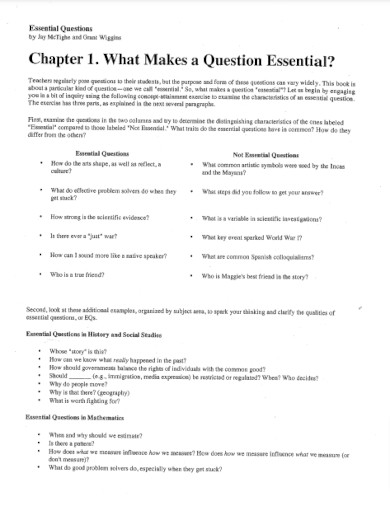
knilt.arcc.albany.edu
2. Sample Essential Questions Template
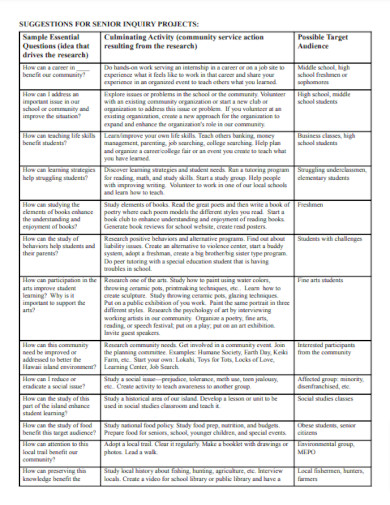
www2.hawaii.edu
3. Social Studies Essential Questions
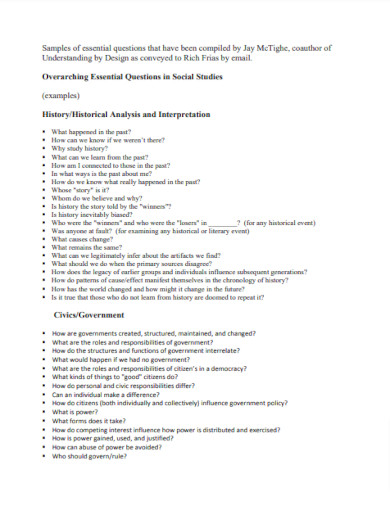
cdnsm5-ss6.sharpschool.com
4. Creative Essential Questions Example
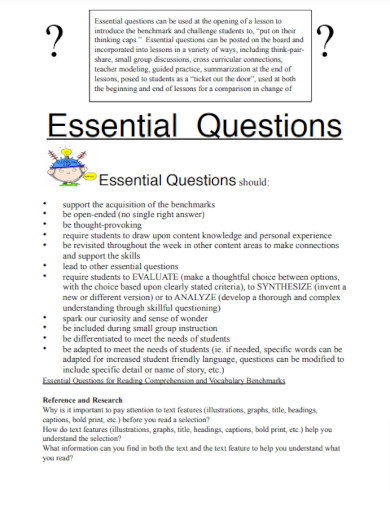
braddaviscie.weebly.com
5. Basic Essential Questions Template
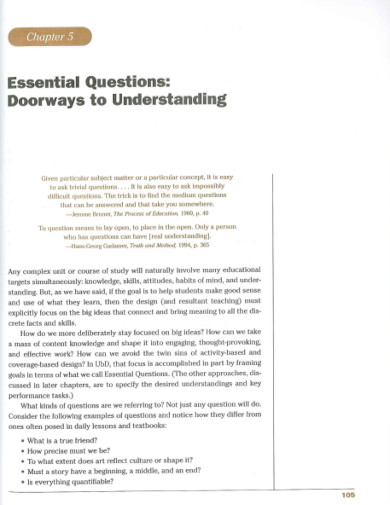
bpb-us-e1.wpmucdn.com
6. Example Essential Questions Example
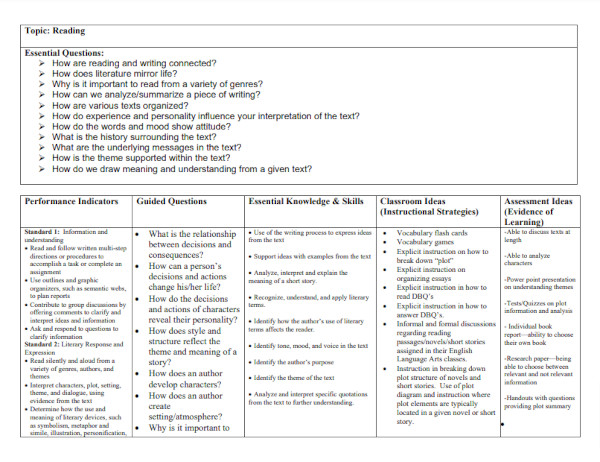
depositcsd.org
7. Essential Questions Lesson Title
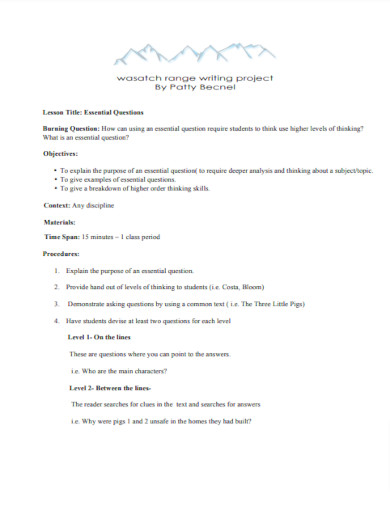
community.weber.edu
8. Draft Essential Questions Template
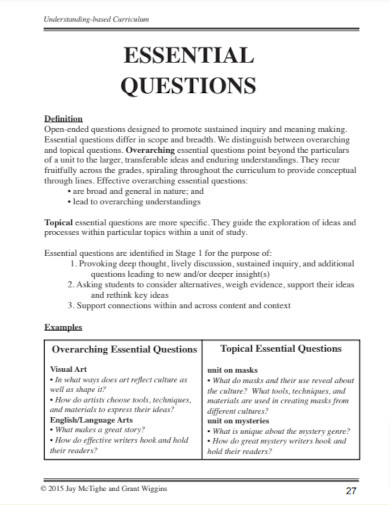
freedomareaschools.org
9. Sample Essential Questions for Math

fcusd.org
10. Essential Questions for All Ages Handout
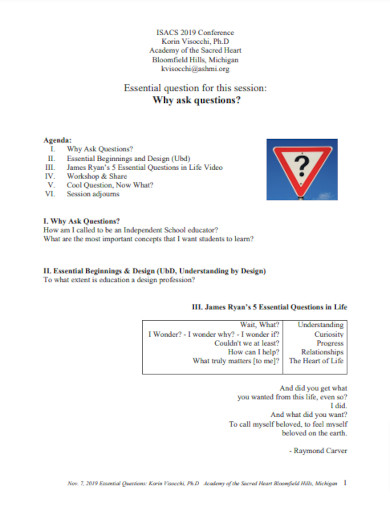
resources.finalsite.net
11. What Are Essential Questions Example
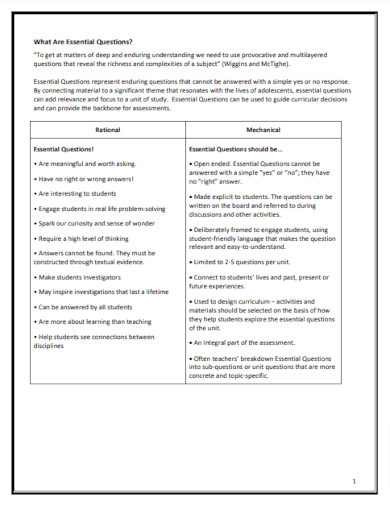
ingenuity-inc.org
12. Curriculum Mapping Essential Questions
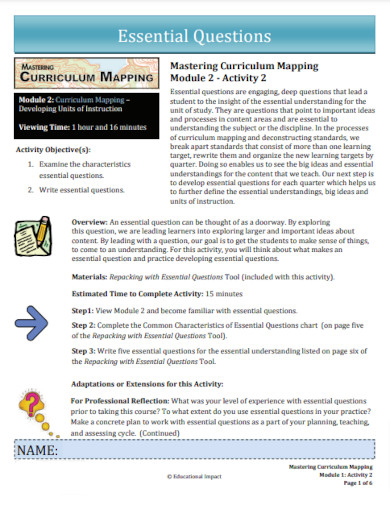
educationalimpact.com
13. Enduring Understandings and Essential Questions
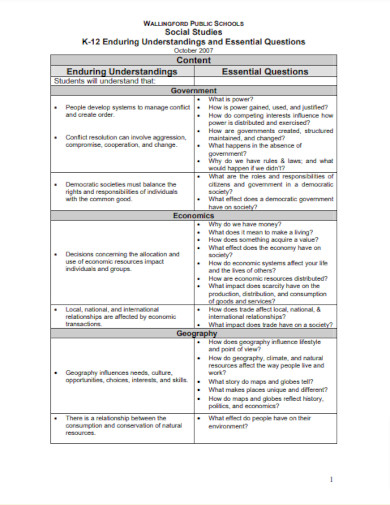
wallingford.k12.ct.us
14. Essential Questions in the Social Studies Classroom
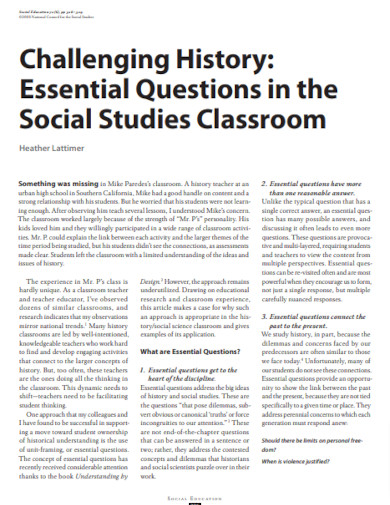
wcde.org
15. Overarching Essential Questions Template
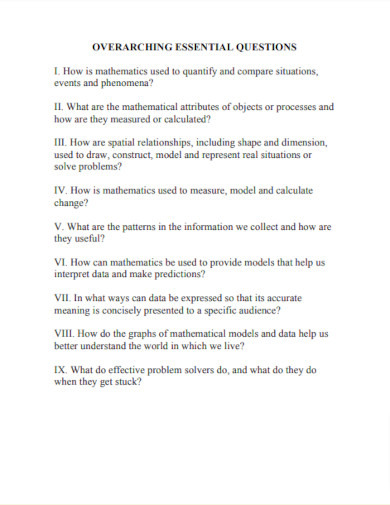
jaymctighe.com
16. Editable Essential Questions Example
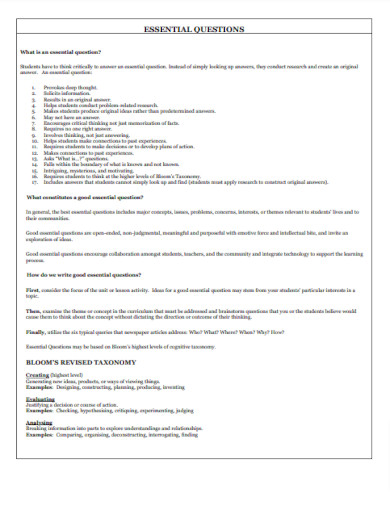
alabamahosa.org
17. Curriculum Map Essential Questions Chart
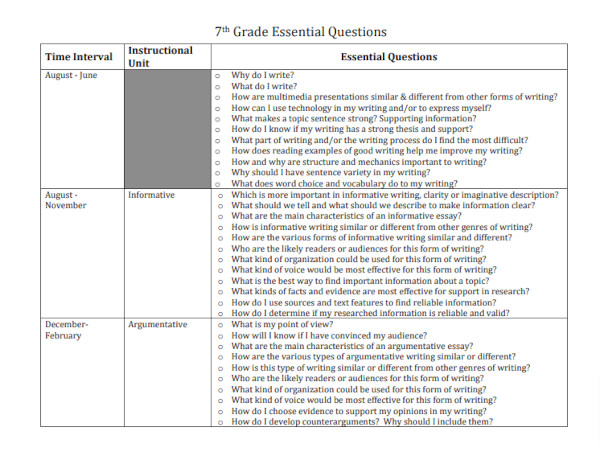
phsd144.net
18. Essential Questions for Linguistic Literacy
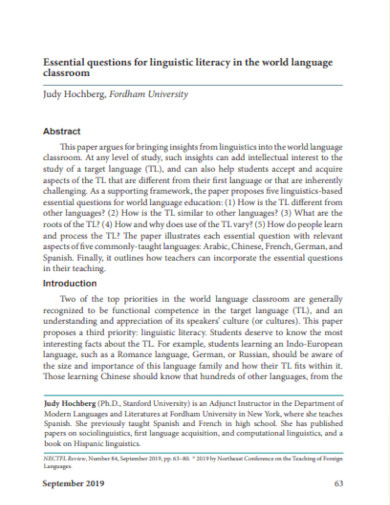
files.eric.ed.gov
19. Writing Essential Questions Template
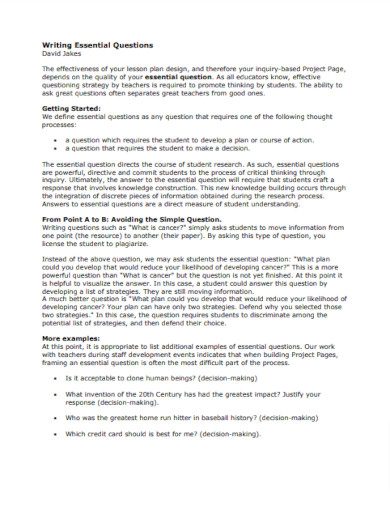
jcisd.org
20. Printable Essential Questions Example
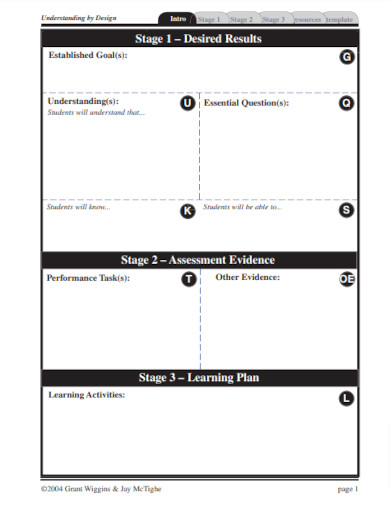
pcs4thgrade.pbworks.com
21. Ethnic Studies Themes and Essential Questions
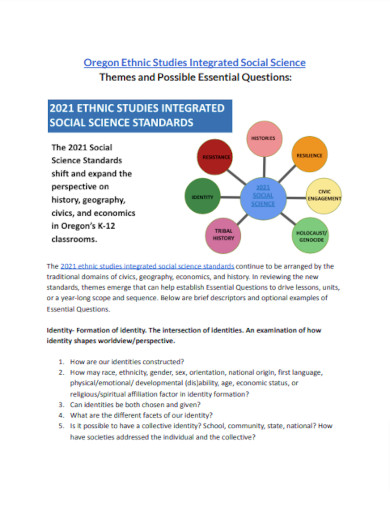
oregon.gov
22. Focus Questions or Essential Questions
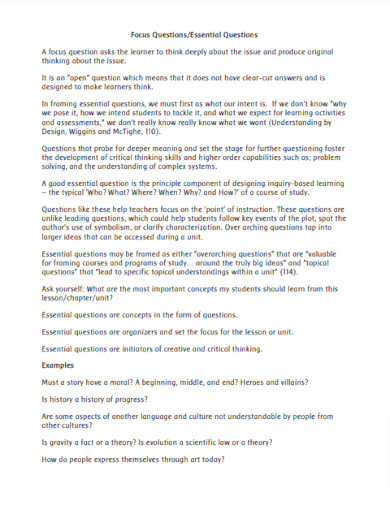
fyreandlightning.org
23. Essential Questions About Elections and Voting
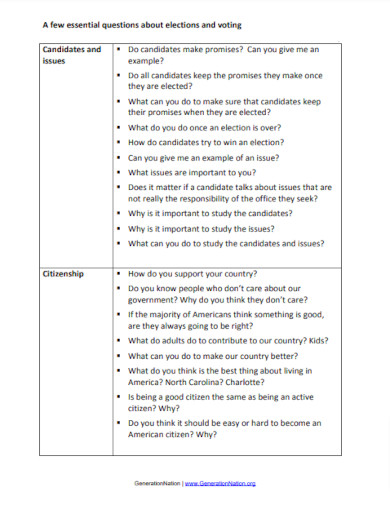
generationnation.org
24. Standard Essential Questions Template
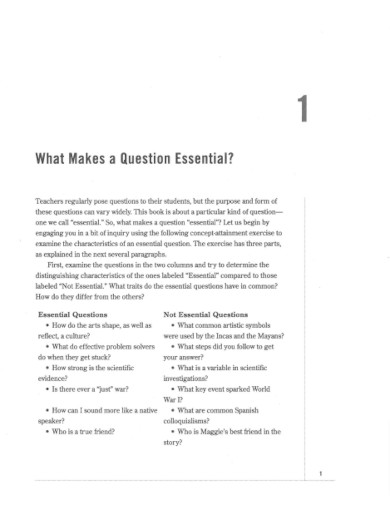
cojusd.org
25. Five Essential Questions Example
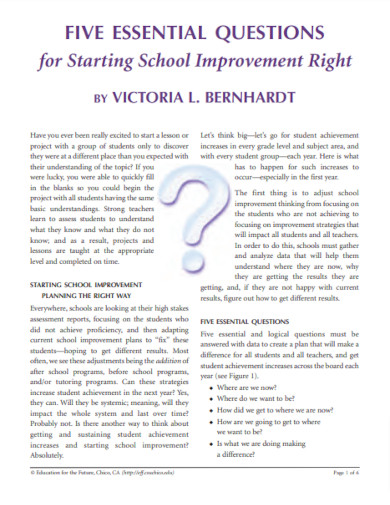
nesacenter.org
26. Weekly Study guide Essential Questions
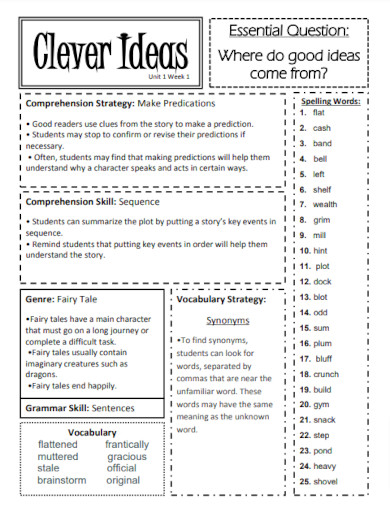
ahschools.us
27. English Essential Questions Template
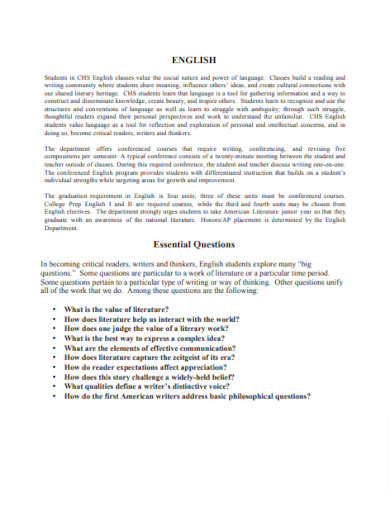
claytonschools.net
28. Math Curriculum Essential Questions
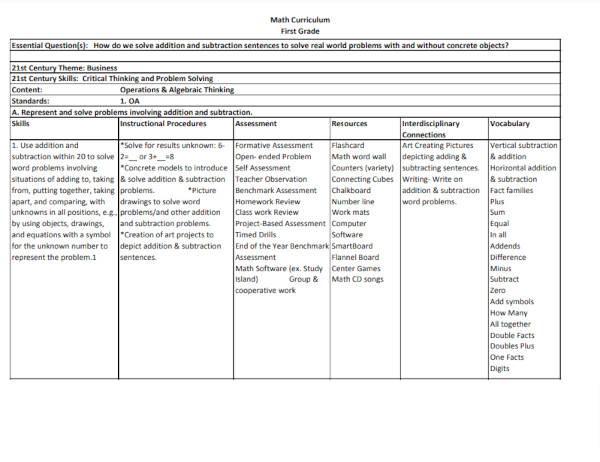
nj02201168.schoolwires.net
29. Modern Essential Questions Example

artsnowlearning.org
What Are Essential Questions?
Essential questions are specific questions that researchers use and design to further obtain more information or data. This question acts as a foundation for researchers to provide follow-up questions to probe deeper into the subject’s psyche, core values, and personality.
A well-made essential question will allow the subject enough room to explain a specific concept, context, or theme in a professional tone as these will spark a whole conversation or dialogue. If you want essential question references, you may use any of the essential questions examples, samples, and articles on the links above. If you need an outline to help you create your essential question, you may opt to use and find an essential question outline format to help you. The outline can provide you with the base structure and flow of an essential question. Before writing the essential question, you must determine the overall purpose and context of the essential question. This is because essential questions will require specific keywords or phrases that are unique to the context to spark a whole conversation. Start by writing multiple versions or alternatives of a single essential question you will use. Afterward, you may choose the best one to act as the final essential question, while reutilizing the rest as follow-up questions. If you need multiple essential questions, you must repeat steps one through three until you are satisfied with the results. When you are done, list all of the chosen essential questions in a digital or physical notebook or notepad.How to Create an Essential Question
Step 1: If Needed, Select or Use an Essential Question Outline
Step 2: Determine the Context of the Essential Question
Step 3: Write Multiple Alternatives to the Essential Question
Step 4: Repeat Steps One to Three for More Questions
FAQs
An essential question is a thought-provoking inquiry that fosters critical thinking and research and is frequently at the heart of a topic’s understanding. Unlike ordinary questions, which seek simple answers, vital questions elicit greater thinking and analysis, promoting a broader perspective on complicated issuesWhat is the difference between an essential question and a normal question?
An essential question is usually an open-ended inquiry with no single, definite solution. It promotes better knowledge and involvement with a topic by encouraging dialogue, critical thinking, and the study of other points of view.Is an essential question an open-ended or closed question?
An essential question is usually an open-ended inquiry with no single, definite solution. It promotes better knowledge and involvement with a topic by encouraging dialogue, critical thinking, and the study of other points of view.Is the answer to the essential question quantitative or qualitative data?
Essential questions are specific questions that can spark the person’s interest or thought process in a specific topic, which can prompt a conversation or an in-depth dialogue about the subject of the question. When doing research, it is important to know how to create and use essential questions to gather data and information.

